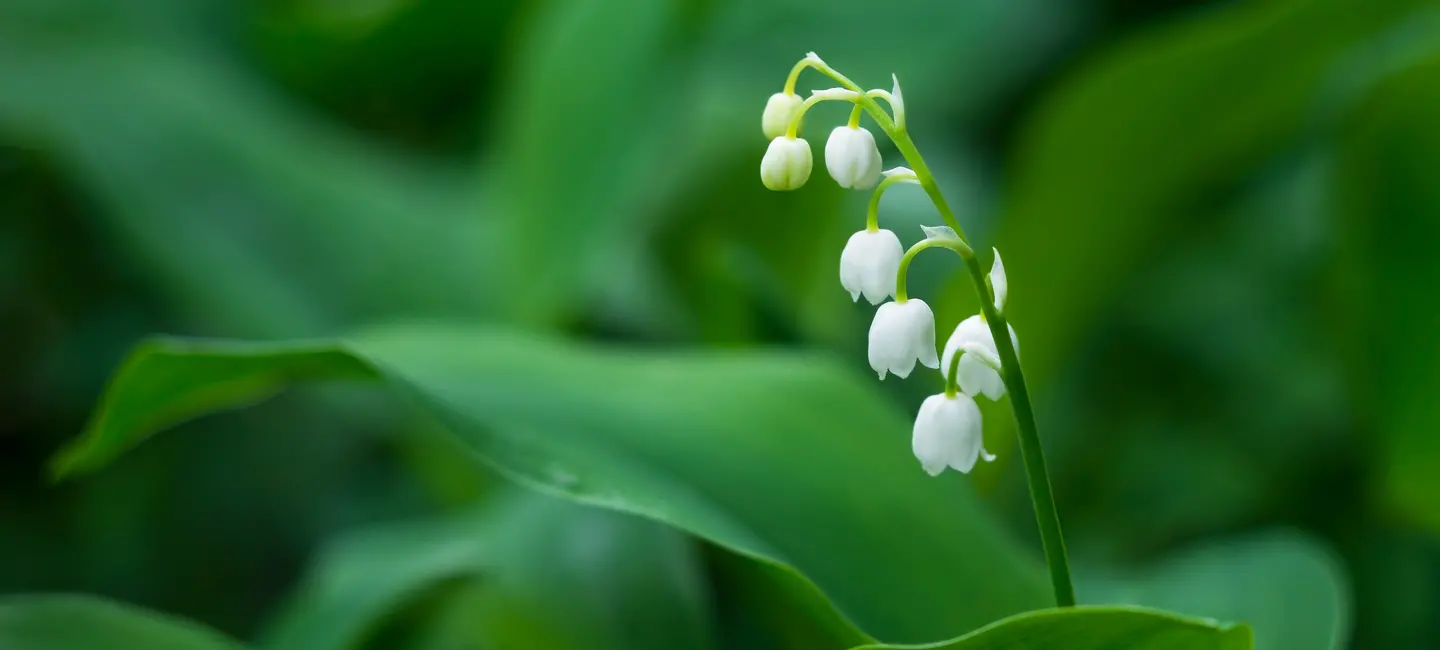
Lily-of-the-valley (Convallaria majalis) is a plant with a strong scent. It contains chemicals called toxic cardiac glycosides, which are poisonous.
The cardiac glycosides in lily-of-the-valley affect the heart. These chemicals can cause dangerous irregular heartbeat.
People use lily-of-the-valley for heart problems including heart failure, irregular heartbeat, and other conditions, but there is no good scientific evidence to support these uses. Lily-of-the-valley might also be unsafe.
Don't confuse lily-of-the-valley with abscess root. These are not the same.
Is It Effective?
There is interest in using lily-of-the-valley for a number of purposes, but there isn't enough reliable information to say whether it might be helpful.
Is it Safe?
When taken by mouth: Lily-of-the-valley standardized extracts are possibly unsafe. Its extracts contain chemicals that can cause serious heart-related side effects. The lily-of-the-valley whole plant is likely unsafe. If you swallow any part of the lily-of-the-valley plant accidentally, get medical treatment right away. It is poisonous.
Special Precautions & Warnings:
Pregnancy and breast-feeding: Lily-of-the-valley is likely unsafe when taken by mouth while pregnant or breast-feeding. Avoid use.
Heart disease: Lily-of-the-valley contains chemicals that can make heart disease worse. Avoid use.
Low blood potassium levels: It's unsafe to use lily-of-the valley if you have low potassium levels. Avoid use.
Antibiotics (Macrolide antibiotics)
Interaction Rating=Moderate Be cautious with this combination.
Lily-of-the-valley can affect the heart. Some antibiotics might increase how much lily-of-the-valley the body absorbs. Taking lily-of-the-valley along with some antibiotics might increase the effects and side effects of lily-of-the-valley.
Antibiotics (Tetracycline antibiotics)
Interaction Rating=Moderate Be cautious with this combination.
Lily-of-the-valley can affect the heart. Some antibiotics might increase how much lily-of-the-valley the body absorbs. Taking lily-of-the-valley along with some antibiotics might increase the effects and side effects of lily-of-the-valley.
Digoxin (Lanoxin)
Interaction Rating=Major Do not take this combination.
Digoxin helps the heart beat more strongly. Lily-of-the-valley also affects the heart. Taking lily-of-the-valley along with digoxin can increase the effects of digoxin and increase the risk of side effects. Do not take lily-of-the-valley if you are taking digoxin without talking to your healthcare professional.
Lithium
Interaction Rating=Moderate Be cautious with this combination.
Lily-of-the-valley might have an effect like a water pill or "diuretic." Taking lily-of-the-valley might decrease how well the body gets rid of lithium. This could increase how much lithium is in the body and result in serious side effects. Talk with your healthcare provider before using this product if you are taking lithium. Your lithium dose might need to be changed.
Medications for inflammation (Corticosteroids)
Interaction Rating=Major Do not take this combination.
Lily-of-the-valley might affect the heart. Some medications for inflammation, called corticosteroids, can decrease potassium and other electrolytes. Taking these products together can increase the risk of side effects of the heart.
Quinine
Interaction Rating=Major Do not take this combination.
Lily-of-the-valley can affect the heart. Quinine might increase how much lily-of-the-valley stays in the body. Taking quinine with lily-of-the-valley might increase the effects and side effects of lily-of-the-valley.
Stimulant laxatives
Interaction Rating=Moderate Be cautious with this combination.
Lily-of-the-valley might affect the heart. Stimulant laxatives can cause diarrhea and decrease potassium levels. Low potassium levels can also affect the heart. Taking these products together can increase the risk of side effects.
Water pills (Diuretic drugs)
Interaction Rating=Moderate Be cautious with this combination.
Lily-of-the-valley might affect the heart. "Water pills" can decrease potassium levels. Low potassium levels can also affect the heart. Taking these products together can increase the risk of side effects.
Calcium: Lily-of-the-valley can stimulate the heart. Calcium might also affect the heart. Taking lily-of-the-valley along with calcium might cause the heart to be too stimulated. Do not take lily-of-the-valley along with calcium supplements.
Herbs that Contain Cardiac Glycosides: Lily-of-the-valley contains chemicals that can affect the heart. These chemicals are called cardiac glycosides. Using it along with other supplements that also contain cardiac glycosides can increase the risk of heart damage. Examples of supplements that contain cardiac glycosides include black hellebore, foxglove, oleander, and pleurisy root.
Horsetail: Lily-of-the-valley contains chemicals that can affect the heart. Horsetail can decrease potassium levels. Low potassium levels can also affect the heart. Taking these products together can increase the risk of side effects.
Licorice: Lily-of-the-valley contains chemicals that can affect the heart. Licorice can decrease potassium levels. Low potassium levels can also affect the heart. Taking these products together can increase the risk of side effects.
Stimulant Laxative Herbs: Lily-of-the-valley contains chemicals called cardiac glycosides. Using lily-of-the-valley with stimulant laxative herbs increases the risk of heart damage due to loss of too much potassium. Examples of supplements with this effect include aloe, alder buckthorn, gossypol, rhubarb, and senna.
There are no known interactions with foods.
There isn't enough reliable information to know what an appropriate dose of lily-of-the-valley might be. Keep in mind that natural products are not always necessarily safe and dosages can be important. Be sure to follow relevant directions on product labels and consult a healthcare professional before using.
Clochette des Bois, Constancy, Convallaria, Convallaria Herba, Convallaria majalis, Convall-Lily, Gazon de Parnasse, Jacob's Ladder, Ladder-To-Heaven, Lily, Lirio de los Valles, Lis des Vallées, Lys des Vallées, May Bells, May Lily, Muguet, Muguet de Mai, Muguet des Bois, Our Lady's Tears.
Information on this website is for informational use only and is not intended to replace professional medical advice, diagnosis, or treatment. While evidence-based, it is not guaranteed to be error-free and is not intended to meet any particular user’s needs or requirements or to cover all possible uses, safety concerns, interactions, outcomes, or adverse effects. Always check with your doctor or other medical professional before making healthcare decisions (including taking any medication) and do not delay or disregard seeking medical advice or treatment based on any information displayed on this website.
© TRC Healthcare 2024. All rights reserved. Use and/or distribution is permitted only pursuant to a valid license or other permission from TRC Healthcare.
